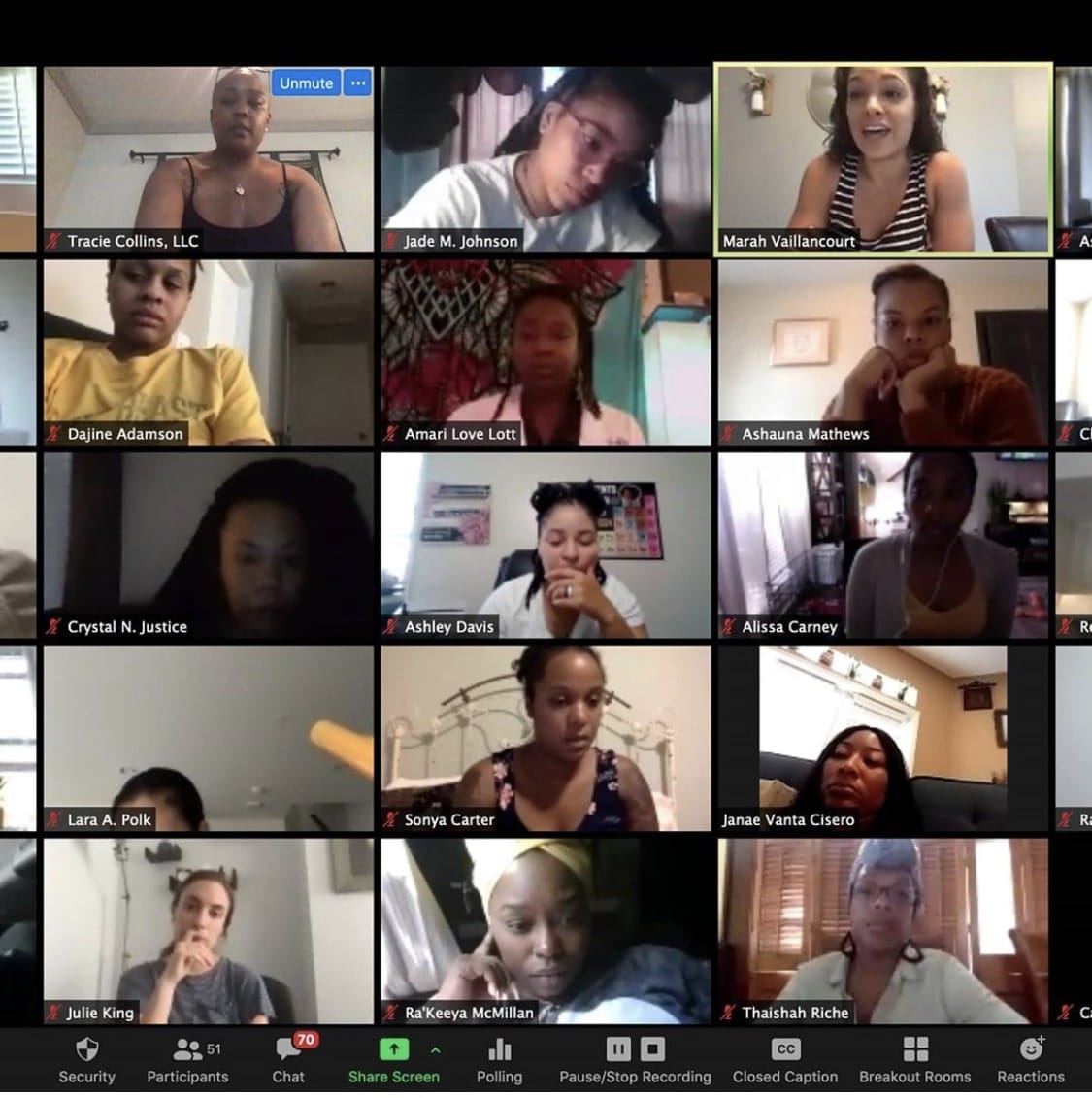We are proud to say that these posts are not sponsored. Our editorial team of Bobbie moms and writers personally select each featured product. If you buy something through our links, we may earn an affiliate commission, at no cost to you.
Tracie Collins’ purpose and life’s work is rooted in the gift of life. In two decades as a doula and midwife, she’s the first to tell you’re called to the work. It chooses you. You don’t choose it.
According to the American Pregnancy Association, a doula’s mission is to help women have a safe, memorable, and empowering birthing experience. With more than 1500 births under her belt, Collins has never lost a baby. Her current mission is to make sure we stop losing so many black mothers. “I understand that you’re (the birthing mother) at a portal,” Collins said, describing the labor process. “You can stay here on this side, or you can choose to leave.”
Black maternal mortality rate
In 2017, new and devastating black maternal mortality rate figures drove the mother of two from the birthing space to a new business plan. Collins is a doula birth expert and author of the autobiography Special Delivery. She is also the founder of the National Black Doulas Association (NBDA), which is an online network of doulas and doulas in training. The NBDA is an organization that provides education and certification. The training is centered around her expertise in the mother’s body, proper prenatal nutrition, and every aspect leading to efficient, and safe labor. It all comes from the foundation of midwifery.
“Number one, we were dying,” Collins said regarding the NBDA development. “It was real common sense, Are you going to be a part of the solution? And also, again–where are all the black doulas?”
The online directory serves as a base for field training, and most importantly, a resource for black families looking for certified birthing experts to guide them through what can very well be described as a health epidemic facing black mothers.
Centers for Disease Control and Prevention statistics
Researchers with the National Center for Health Statistics found that of the 658 women who died of maternal causes in 2018, black women were the face of most deaths. Black mothers died 2½ times more often than white women. According to the Centers for Disease Control and Prevention (CDC), that’s 37.1 black mothers dying to 14.7 white mothers per 100,000 live births.
Further research from the CDC takes a look at nearly a decade’s worth of maternal mortality rates—from 2007 to 2016- showing black mothers died at a rate of 3.2 times that of white mothers.
Becoming a black doula and midwife
When Collins began her career in 2000, she said she was just one of two black doulas in the Bay area. The same held true when she began in the mid-wife space circa 2003. Throughout her career, she’s realized the racial disparity in birthing spaces can tie right back to the level of communication regarding pain.
“You can tell me something, or you can make a facial expression (during birth), and I’ll know exactly what you’re saying without you uttering a word versus the counterparts saying ‘Well, what does that mean?”
“We can’t have that when our life is on the line. That’s why representation matters so much.”
Collins has served on Bobbie Baby’s Mother Board, and the Co-founder and Chief Operating Officer (COO) of Bobbie, Sarah Hardy, was one of Collins’ previous clients. Collins coached Hardy through the births of both her children in 2014 and 2016.
When Hardy approached Collins about joining the board, she described Bobbie’s mission to provide formula with rich, wholesome ingredients. Collins said she was eager to join her friend and client on another part of the mission-diverse outreach to new mothers who may be struggling against the stigma attached to formula feeding.
Black breastfeeding in America
“I gave her a little bit of history on what black breastfeeding means in this country. Our bodies have been raped since Plymouth Rock landed on us so wet nursing has put a lot of, understandably so, taboo around breastfeeding our babies for black women or black people in this country.”
Collins said her board role was also about helping to offer better solutions and information to mothers for their feeding journeys.
“I also believe there’s no room for judgment in this field. Breastfeeding, the journey in that, also leads to some sort of postpartum blues and or depression because of the feeling of inadequacy around not being able to feed your baby. There’s no judgment in that.”
“What needs to happen is we need to make sure mom and birthing person feels extremely calm and comfortable that they’re giving their babies something good, that’s the best they can give them outside of their milk themselves.”
Simply put— she believes in Hardy. She believes in Bobbie’s mission. And she believes in an approach that’s different from current corporate-led ideas behind formula solutions.
This is a woman-led mission so their approach is going to be different, and we need to get white men out of our vaginas and uteruses. Politics has no place in pussy. It doesn’t. So how we can reclaim that is really important.
Tracie Collins

